object highlight
Latin Verse Machine
‘Eureka’ is a marvellous machine which creates Latin poetry. This remarkable invention was created by Bridgwater eccentric John Clark (1785-1853)
‘Eureka’ is a marvellous invention which creates Latin poetry. It was created by Bridgwater eccentric John Clark (1785-1853), a cousin of the founders of C & J Clark Ltd, The machine can be said to be a predecessor of the modern typewriter or calculator and was representative of the automaton and arithmetic devices popular during the 19th century.
One of the gems of the Trust’s collections is the truly unique and miraculous ‘Eureka’ Latin Verse machine. This remarkable invention was created by Bridgwater eccentric John Clark (1785-1853), a cousin of the founders of C & J Clark Ltd, Cyrus Clark and his brother James Clark. John Clark, described as “as great a curiosity as his machine” and the Philosopher of Bridgwater, spent some 15 years inventing and refining his masterpiece. In 1845, ‘Eureka’ went on its travels to London where it was put on public display at the Egyptian Hall in Piccadilly.
‘Eureka’ resembles a large wooden fruit machine, generating Latin hexameter verse instead of winning fruit combinations! The machine can be said to be a predecessor of the modern typewriter or calculator and was representative of the automaton and arithmetic devices popular during the 19th century.
Once wound up, it can be started or stopped by moving the hand lever outside the case. It will compose one line per minute before it winds down, with a bell ringing when the line is formed. Originally the National Anthem would play during the composition (the wooden cylinder still exists inside the machine, covered in paper with holes drilled in order to mark musical notation).
When operational, the Latin Verse Machine will create 26-27m lines of ‘poetry’ before starting to repeat itself, using a pre-determined vocabulary consisting of 24 words. From left to right, the words on the display are as follows: adjective, noun, adverb, verb, noun, adjective. The lines produced are not technically poetry – rather, “they are simple statements of fact, often platitudinous, nearly always gloomy [since] more impressive remarks can be made when the setting is solemn”.
At the time of the exhibition, there was an inscription on the front of the machine above the display, bearing the following verse:
Full many a gem, of purest ray serene
The dark, unfathom’d caves of ocean bear
And many a flower is born to blush unseen
And waste its fragrance on the desert air.
Full many a thought, of character sublime
Conceived in darkness, here shall be unrolled
The mystery of number and time
Is here displayed in characters of gold
Transcribe each line composed by this machine
Record the fleeting thougths as they arise
A line, once lost, may ne’er be seen again;
A thought, once flown, perhaps for ever flies
John Clark was able to retire comfortably on the profits of the exhibition and to pursue his interests back home in Bridgwater where he was an integral part of an off-shoot branch of the Clarks of Greinton.
Following John Clark’s death in 1853, ‘Eureka’ eventually found its way to Street and briefly into the factory at 40 High Street where it stood in family director offices. It then moved to the Geology Museum at Crispin Hall in c 1889 where it remained until it was finally housed within the company museum across the road. The Latin Verse Machine has been in the care of the Alfred Gillett Trust since the mid 1990s.
In early 2015, ‘Eureka’ went to Devon for extensive restoration, bringing it back into working order through an exciting collaboration with the University of Exeter and a project funded by the Arts and Humanities Research Council.
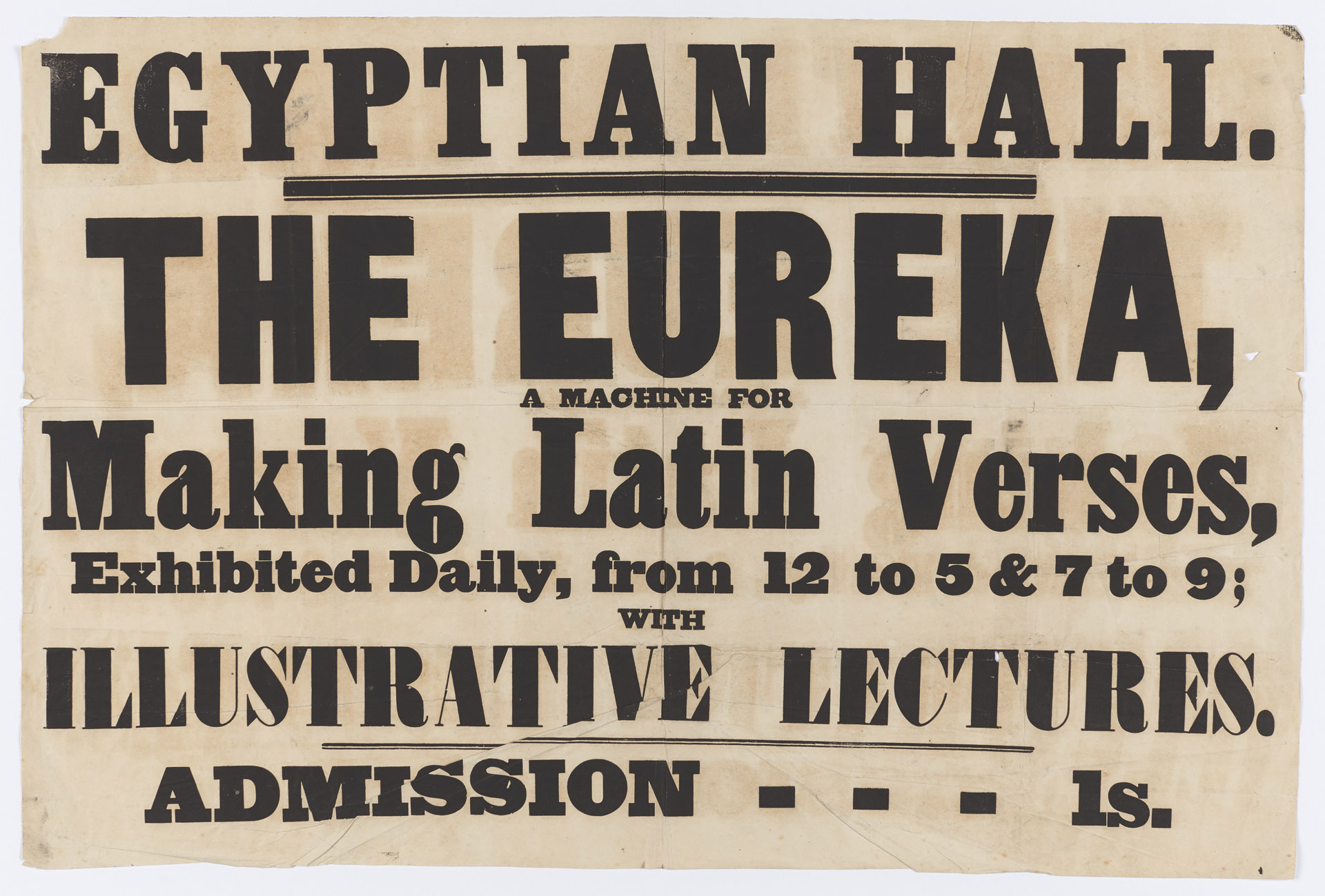
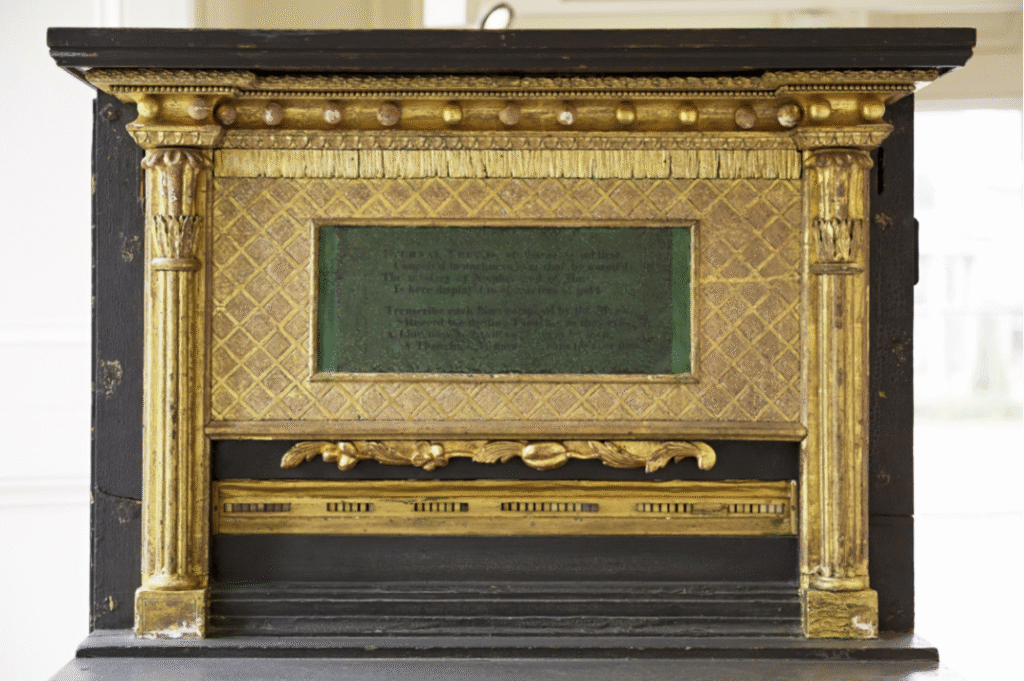
-
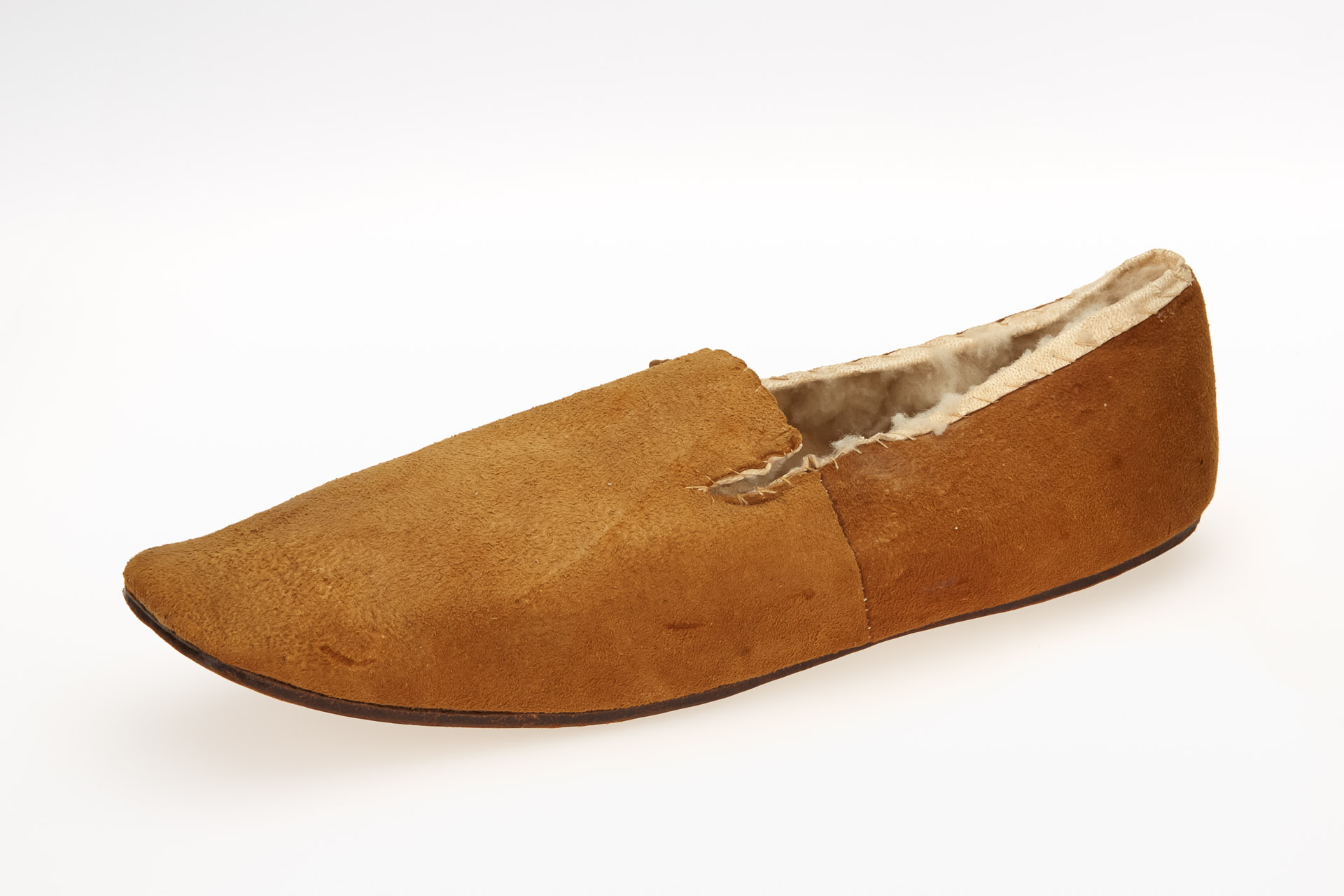
Collection
Brown Petersburgh
Clarks began making slippers called the ‘Brown Petersburgh’ as a side project to their sheepskin rug business. Made by hand using off-cuts of sheep fleece, these cosy affordable slippers became popular and were the foundation of C&J Clarks footwear business.
Read full story -
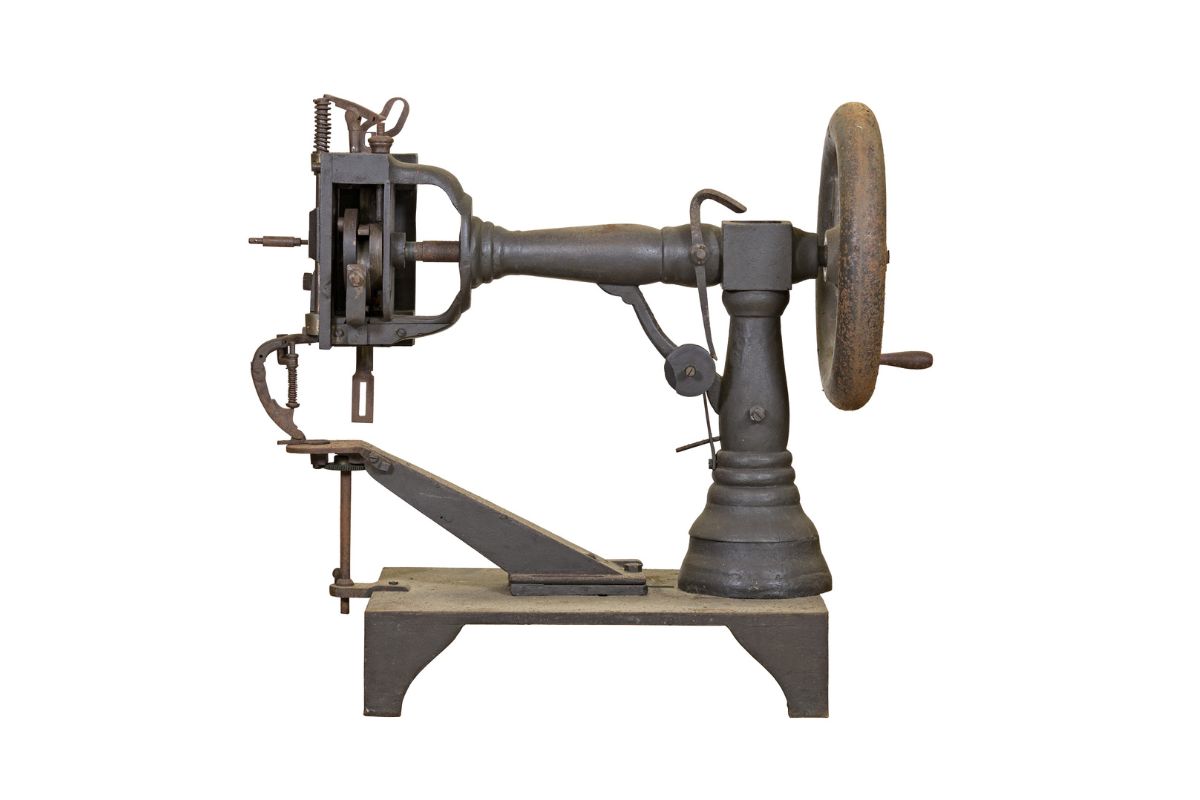
Collection
Crispin Sewing Machine
The 1863 Crispin Sewing Machine was an Innovation in Sole Stitching
Read full story -

Collection
Latin Verse Machine
‘Eureka’ is a marvellous machine which creates Latin poetry. This remarkable invention was created by Bridgwater eccentric John Clark (1785-1853)
Read full story -
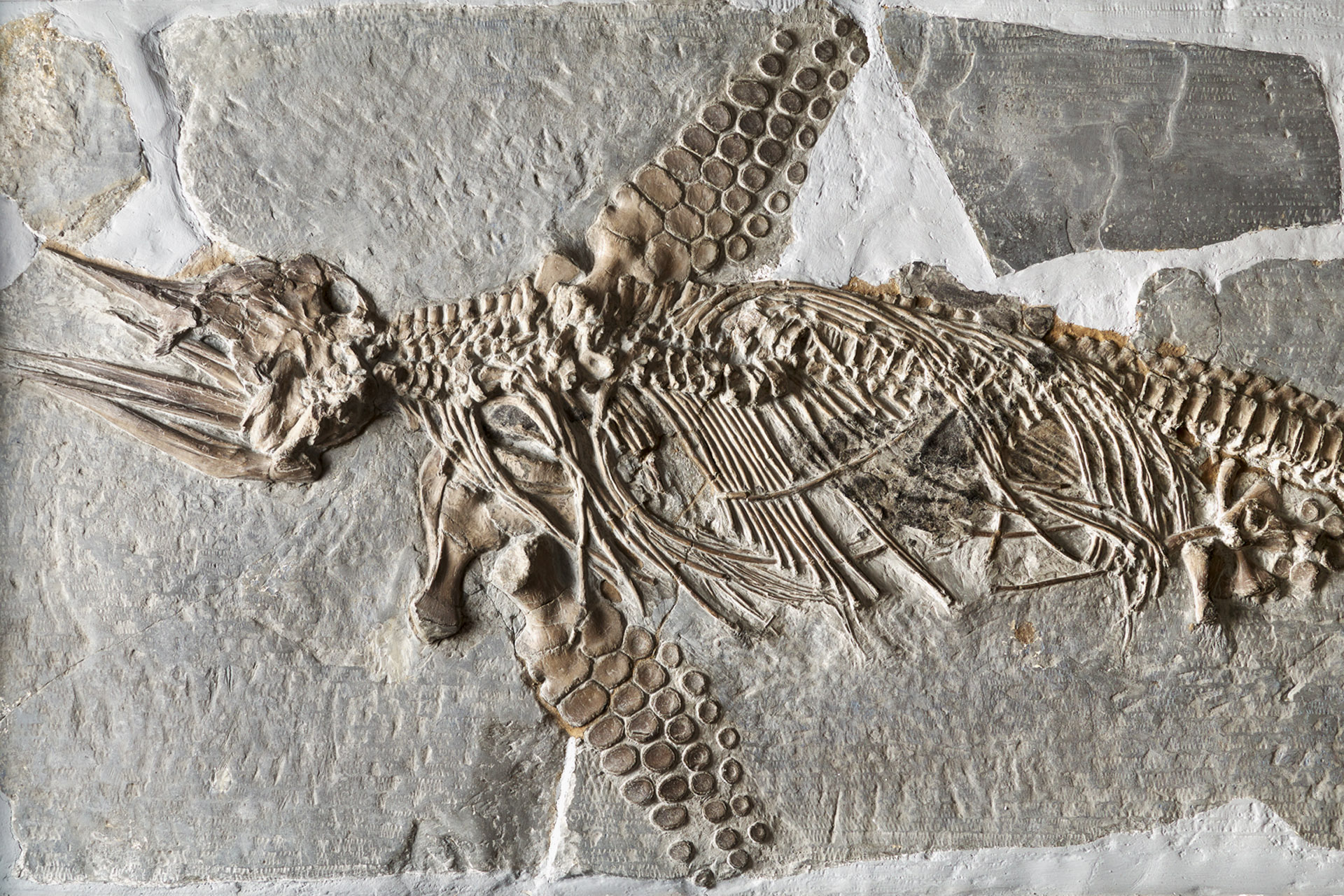
Collection
Fossils
An internationally important collection of Jurassic fossils collected by Alfred Gillett, a member of the Clark family, and members of the 19th century Somerset Archaeological Society.
Read full story